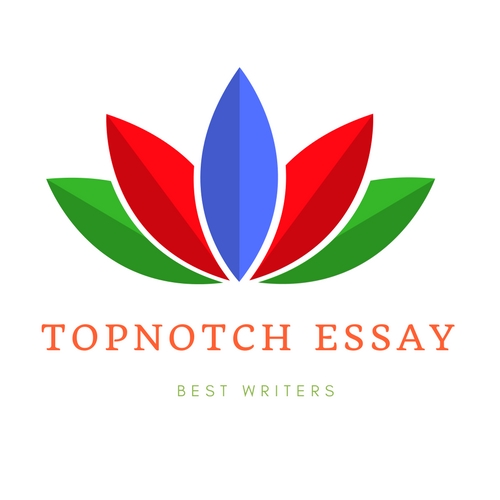Information and Knowledge Management Assignment
Information about the Assignments
Aims |
· To develop an integrative perspective of different approaches and views on the topics explored throughout the unit;
|
Objectives |
· To develop an understanding of fundamental IM and KM principles, concepts and techniques
· To critically analyse current issues and debates in fields of IM and KM
|
Outcomes |
· You will be able to demonstrate a critical appreciation of the various themes covered throughout the module and of the debates generated around them |
Sequence of Learning and Assessment
Assessment is 40% through a group presentation and 60% through an individual essay.
The group presentation consists of presenting a diagrammatic representation of an integrative perspective on information and knowledge management strategies in organisations and submitting a written explanation of the diagram (500 words).
The individual assignment (1800 words) builds upon this and is an essay discussing the key issues identified in your diagrammatic representation, using the literature and the academic background to the subject to support your arguments and the cases studies of Xerox, NASA and Danone as examples. This involves comparing and contrasting different approaches to information and knowledge management strategies, drawing on material from both the literature and the case studies.
Group presentation: an integrative perspective on information and knowledge management in organisations
This assignment aims at presenting an integrative perspective on Information and Knowledge Management in organisations. It includes four elements:
- Producing ONE diagrammatic representation of your integrative perspective on Information Management and Knowledge Management. This should consist of a synthesis of the linkages between different themes explored throughout the module, as well as, if appropriate, of other relevant issues you may identify through the literature searches you will carry out. You should also draw on the literature to develop your representation.
- Producing a written explanation of the diagram (500 words).
- Delivering a 5 minute presentation (+ c.5 minutes discussion) explaining the issues represented in your diagram in week 11.
- In accordance with University policy and procedures, students must also produce a short (approx. 250 words) individual reflective self-assessment of their group work experience and their individual contribution to the group task. This item will not count towards the overall word-length and is not assessed; however, it is a necessary part of the assignment and you must submit it to pass it.
You should must the documents outlined in 1, 2 and 4 via Turnitin on the 9th December 10AM. You must bring an electronic copy of your presentation on the 11th December for the group presentations. Verbal feedback will be given on the day and formal feedback on the 20th December.
Individual essay: a discussion of the key issues identified in your group diagram against the literature and the NASA, Xerox and Danone case studies.
This assignment is an individual essay of 1800 words. It builds upon the group assignment and involves:
- Outlining what, in your personal opinion, are the key issues that should be included in developing an integrative perspective on Information Management and Knowledge Management; this builds upon the your group work activity – you can, of course, present an alternative perspective if your view has changed as a result of furthering your readings and reflecting upon them;
- Discussing these key issues using the using the literature to support your arguments and examples from all three case studies – Xerox, NASA and Danone.
For this, you are required to:
- search, gather and review a pool of key resources;
- compare and contrast different viewpoints and discuss the assumptions they make about the nature of organisations, the issues they face and the nature and role of information and knowledge in how those issues are tackled by different organisations;
- discuss the usefulness of considering potential alternative approaches, considering the contexts of the case studies; as mentioned above, reference to the case studies that are analysed in the module should be made, in order to provide an explanation and exemplification of your views.
- Begona Lloria, M. (2008). A review of the main approaches to Knowledge Managemnt. Knowledge Management Research & Practice, Vol. 6, pp.77-89.
- Binney, D. (2001).The knowledge management spectrum : understanding the KM landscape. Journal of Knowledge Manegement, Vol. 5, No.1, pp. 33-42.
- Bultrini,L., Sempéré,J., MCCallum,S., Newman, W. (2016). Knowledge management in libraries and in organizations: theory, techniques and case studies. IFLA publications. Berlin: DeGruyter Saur
- Bystrom, K., Heinstrom, J. and Ruthven, I. (2019). Information at work: information management in the workplace. London: Facet.
- Crane, L. (2013). A new taxonomy of knowledge management theory and the turn to knowledge as constituted in social action. Journal of Knowledge Management Practice , 14, (1).
- Collison, C., Corney, P. Lee Eng, P. (2019). The KM Cookbook: storie4s and strategies for organisations exploring Knowledge Management Standard ISO30401. London: Facet. (e)
- Davenport, T. (2015). Whatever happened to knowledge management? Wall Street Journal. Retrieved from http://blogs.wsj.com.
- Dalkir, K. (2011). Knowledge management in theory and practice. 2nd Cambridge (MA): MIT Press.
- Earl, M (2001). Knowledge management strategies: toward a taxonomy. Journal of Management Information Systems, 18 (1), p. 215-233.
- Hansen, M.T., Nohria,N. and Tierney, T, (!999). What’s your strategy for managing knowledge?, Harvard Business Review, 77, Mar.-Apr. 1999, p.106-116.
- Jashapara, A. (2011). Knowledge management: an integrated approach. Harlow : Financial Times Prentice Hall (electronic resource).
- Johannessen, J.-A. (2019), Knowledge Management as a Strategic Asset. Emerald Publishing Limited. (eBook).
- Myllarniemi, J., Laihonen, H, Karppinen, H. Seppanen, K. (2012).Knowledge management practices in healthcare services. Measuring business excellence, Vol.16, No.4, pp. 54-65.
- Orna, E. (2016). Information strategy in practice. New York: Routledge (eBook).
- Schopflin, K and Walsh, M. (2018). Practical Knowledge and Information Management. London: Facet. (eBook).
Vasconcelos, A.C. (2008). Dilemmas in knowledge management. Library Management, Vol.29, No.4/5, pp.422-443.







Recent Comments